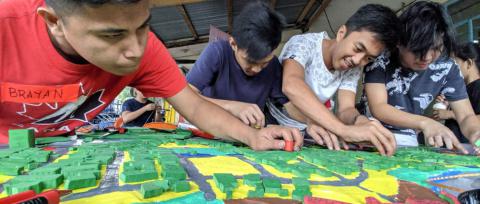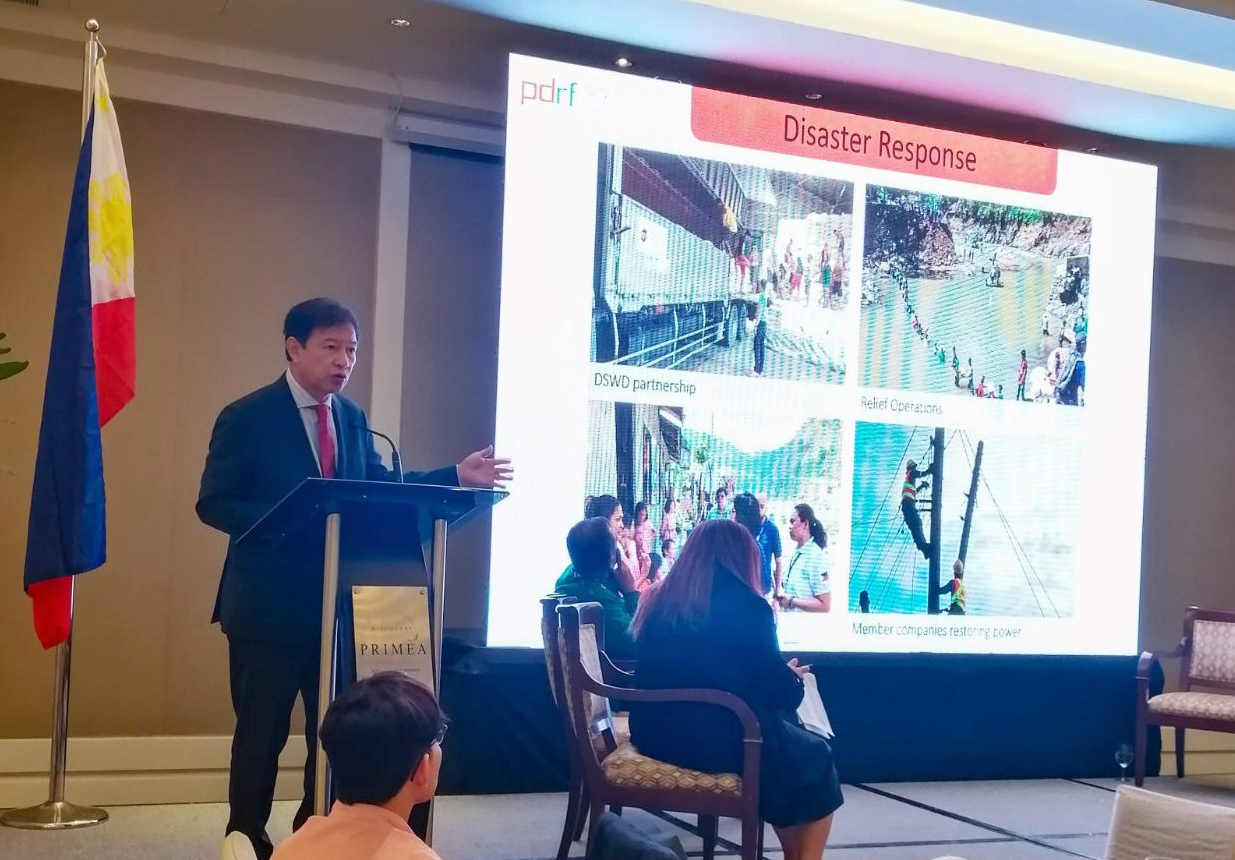
Philippine Disaster Resilience Foundation (PDRF), the country’s major private sector vehicle and coordinator for disaster risk reduction and management, recently highlighted private sector response efforts and contributions to disaster resilience in 2019 and reaffirmed the role of the private sector in working with the government in responding to emergencies around the country and preparing for future crises during its annual meeting.
In 2019, more than 50 companies, including subsidiaries and corporate foundations, mobilized their resources to reach communities affected by the magnitude 6.1 earthquake that hit Castillejos, Zambales in April, the magnitude 5.9 earthquake that struck Itbayat, Batanes in July, and the magnitude 6.5 earthquake that hit Tulunan, Cotabato in November. These companies include PDRF members PLDT & Smart Communications, Ayala Corporation, Meralco and One Meralco Foundation, UPS, Globe Telecom, Jollibee Foods Corporation and Jollibee Group Foundation, Manila Water Company, Maynilad Water Services, AirAsia, Air 21, Makati Medical Center Foundation, and Aboitiz Foundation.
Overall, the PDRF private sector network provided over 1.8 million liters of clean water, deployed 18 trucks and chartered 7 flights for logistical assistance, distributed about 91 tons of relief items and more than 8,500 non-food items, and provided over 50,000 ready-to-eat food items and more than 37,000 family food packs to augment government response efforts.
The network’s growing partnership with the government was also highlighted, including the recent fiber optic connectivity provided by PLDT for a DOST-PAGASA Doppler Radar in Alburqueque, Bohol. Public-Private Partnerships for the year also include efforts in updating the National Energy Contingency Plan with the Department of Energy and the development of the Safe Hospitals Program with the Department of Health and the Safe Schools Program with the Department of Education. PDRF will also be partnering with the government in programs such as the Resilient Infrastructure Program, the Safe Ports Program, and the Safe Airports Program.
Established in 2010, PDRF began as a public-private partnership in response to the devastation caused by Typhoon Ondoy (Ketsana) in 2009. Recognized by the United Nations as a global model for establishing public-private partnerships in disaster risk reduction, it is actively involved in helping build local business disaster management networks across the globe.


